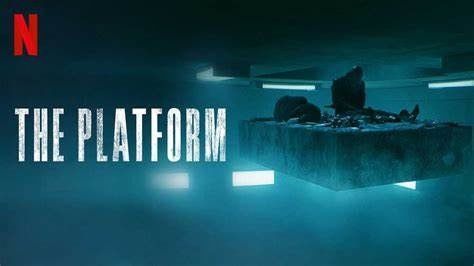The Platform as commentary on class antagonism

The Platform or in its original Spanish title “El Hoyo” is an award-winning 2019 Spanish socialist commentary. The Netflix film is under the fiction-horror genre. Under the direction of the well-known Spanish director Galder Gaztelu-Urrutia.
The setting of the film is a large tower like “Vertical Self-Management Center.” In this film, the residents are fed through a platform, in accordance with their respective floors. The Platform is filled with food on the top floor which gradually decreases as it descends through the tower’s levels.
It halts for a fixed and certain amount of time on each floor or level. The system inevitably leads to conflict. This is because the residents at the top levels get to eat as much as they can. While the levels below them get only the leftovers from the previous ones.
Goreng who is played by Ivan Massagué is the center point of view of the film. He is elected to enter the “retreat center” to stop smoking. He aims to read Don Quixote and get his diploma after his six-month stay.
Goreng was shocked, however, as he realize the real inner workings of the management center. His first cellmate clarifies the cycle and the systems of the facility that they call “The Hole” to Goreng.
The film reached its impasse as it was revealed that in every 30-days one might be positioned on a floor different to that the one they are currently on. This is why it is better for a “prisoner” to eat what he or she can because there is no telling if the prisoner would ever eat again. Or in some cases be eaten themselves in the next month.

Criticism
In terms of criticizing The Platform for its symbolic message, the film cannot be any more on point. The way that the “levels” symbolizes the different classes of society. Those on the upper levels, the upper class, the middle levels the middle of the working class.
Finally, those in the lowest of levels represent the marginalized lower class. All of these become more blatant in the portrayal and progression of the film. One thing that is interesting about this film’s storyline is how it was able to portray the deviant but realistic way in which the different classes interact with one another.
Social Horrors and Social Truths in The Platform
It would be easy to say that the film The Platform is a commentary on the need for wealth-distribution. A reintegration to a utopia where everybody only takes as much as they need and leave the rest for everybody else.
However, I think that the deeper message that this film is trying to portray is that this was not a criticism against the “rich” and the wealthy per se. Rather, it was a commentary on how the “system” that we live in, hones us to be selfish and greedy.
It embeds upon us the need to take more than we can because there is no assurance that we would still be in the class structure that we are currently in or want to be in the future.
We live in a political system where people are left to starve or fend off themselves. This is why it is up to the civic society to ration the available resources. In order to ensure that everyone from all levels would be able to survive without having to turn to a life of crime or criminality just so they could feed their families. This is perhaps why The Platform is worth watching because it is not as fictionalized as we think.
Precious' only desire for the future is to be more human. The world we live in has shackled us in the limitations of practicality that we are taught that to be human is to be weak. She wants to change that narrative and attempt to prove that the best way to progress and equality is by amplifying our humanity. Believe it or not- she absurdly believes that this could be done through writing. On a more formal and boring note she has a journalism degree with plans to pursue legal studies in the future.






